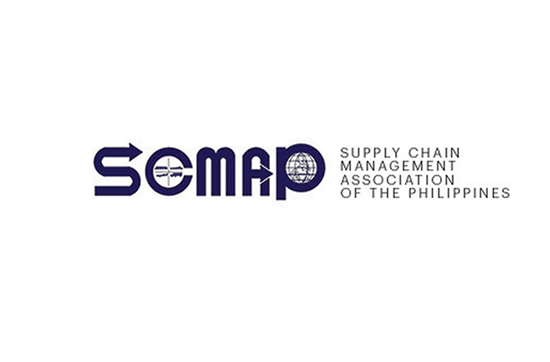The night before the first leg of #SCC20 Live —this year’s reimagined edition of our flagship SCMAP Supply Chain Conference—I was invited, among others, to speak to MBA students of the University of the Philippines to discuss how the supply chain sector has coped with the coronavirus pandemic. It was a good time as any to talk about the importance of collaboration among stakeholders from both the public and private sectors—of how recognizing common goals and working together to achieve them is the key to moving things forward, especially now when it seems we’re not allowed to move much, at least from place to place.
Perhaps the most important thing collaboration leads to is confidence – in knowing you have each other’s backs, in understanding each other’s motivations, in being able to work towards desired outcomes despite the differences. In these times of uncertainty, nothing motivates more than knowing that you’re not alone in enduring, or battling through, or coping with, these hardships. Arguably it’s confidence – or lack thereof – that informs how we feel about the developments of the past few months.
I realized this during the first leg of #SCC20 Live, held last Thursday, where we gathered industry leaders and stakeholders to present their perspectives on just where we are headed exactly. We were faced with different perspectives on how we can work to bounce back better from the pandemic and its drastically negative effects on the economy. In the end, having the confidence in our leaders—both in government and in business—to be able to come together and work would give us some peace of mind.
So where are we now, exactly? It’s going to be seven months since the government first declared community quarantine across Luzon. The economy has contracted sharply since then, with GDP crashing to record depths rates and unemployment reaching new highs. From where I’m sitting, people are becoming impatient about how long we’ll have to endure this: there is a pervasive feeling that much more should still be done so people will have less apprehensions about going back to some sort of normal. A recent PulseAsia survey said 91% of Filipinos are afraid of contracting the virus throughout their daily lives. Seven months later, the threats still loom.
There are different ways to look at possible solutions to the issue. You can say it’s all about the consumer having the confidence to spend again. Sure, they are spending, mostly online, but uncertainty over incomes and unfamiliarity with the so-called new normal is holding them back. Also, again, morale: people want to get out of the house, but sometimes the task of going for a coffee in a coffee shop, like we all used to, is more daunting because of all the (necessary) extra steps that must be taken. Result: less money goes around, and it becomes more difficult to get out of these economic doldrums.
You can say the government must take a more proactive role in combating the pandemic. Frankly the first few months have been dismal, and pronouncements that we’re all better off waiting for a vaccine has somehow set a complacent tone. But the recently passed Bayanihan to Recover As One law puts significant resources on expanding our health care capacity, allowing us to better respond when a new spike of cases comes along. On the economic front, it is betting on a revised version of corporate tax reform to attract businesses to come in, and bolstered resources for our financial system to better handle economic shocks. But, of course, whether businesses will use the resources to invest in their operations or just grow their dividends remains to be seen.
Perhaps it’s all up to the private sector. For the most part, they have been trying their best to cope – particularly the bigger companies which have been asked to continue to operate through these trying times. But issues that they have been facing even before the pandemic—the lack of capacity to expand and the capability to ensure high service levels—has hit particularly hard nowadays with new restrictions in place. Suddenly plans to invest in their companies have had to take a halt, or be accelerated out of necessity. And, of course, smaller businesses have been forced to close altogether.
The picture painted during that first session by our speakers—the Department of Finance’s Atty. Nina Asuncion, COL Financial’s April Tan, the Philippine Retailers Association’s Rosemarie Ong, and UNCTAD’s Mark Assaf—is one of optimism with reservations. We are in a better position now than in previous crises, but all this uncertainty has meant people trust each other a little less. Understandably, for one, but again, we will have to work together to get to our common goal: to bounce back from this pandemic, but not to go back to where we were before, but to make things better from everyone. We’re all working towards this, but here’s one thing to remember: confidence is earned.
#SCC20 Live: Speaking of our flagship event, we have two more sessions happening this Thursday and next. Our second session, Rethink: Improving Our Supply Chain Processes, will feature Kuehne+Nagel’s Elisha Camus, Vuealta’s Joost Driessen, Synerbyte’s Cliff Eala, In1Go’s German Martizano and Anaplan’s Allen Xavier. Our third session, Reconnect: Keeping Our Sights On What’s Important, will be led by DTI secretary Ramon Lopez, and will also feature GoRobinsons’ Edna Belleza. More speakers are to be confirmed, but you can register now —visit scmap.org to learn more.
Henrik Batallones is the marketing and communications director of SCMAP, and editor-in-chief of its official publication, Supply Chain Philippines. More information about SCMAP is available at scmap.org.





